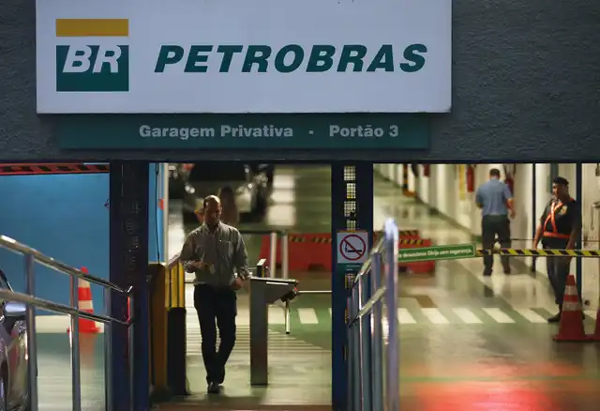
Hunting Alpha, Seeking Alpha
NEW YORK
EnergiesNet.com 01 27 2023
Introduction
The nine most terrifying words in the English language are: I’m from the Government, and I’m here to help.”
– Ronald Reagan; August 12, 1986
When I look at Petrobras (NYSE:PBR), I am reminded of this quote by Ronald Reagan. I believe Petrobras is headed along a perilous direction for minority shareholders, fraught with risks of value destruction. My thesis is simple:
- Petrobras’ days of high dividend payout are over
- Lower downstream pricing will reduce margins
- Return-dilutive capex will erode free cash flow
I believe a bet on Petrobras today is a highly speculative bet on the long term future of an enterprise run according to government’s interests rather than those of minority shareholders. I would exit this stock if I were a shareholder.
Petrobras’ days of high dividend payouts are over
Cumulatively across the 19 quarters spanning Q1 FY18 to Q3 FY22, Petrobras has distributed BRL 308,683 million in dividends, corresponding to a cumulative dividend payout ratio of 97.9%. Almost 91% of those distributed dividends have come in the last 6 quarters spanning Q2 FY21 to Q3 FY22. This was driven by the Bolsonaro government’s letter to Petrobras to increase dividends and finance fiscal spends before a key election which was eventually lost last year.
However, this era of almost 100% dividend payout is coming to an end. Petrobras’ new nominated CEO Jean Paul Prates himself has stated in May 12 2022 that it is necessary to lower the dividends paid by Petrobras.
Lower downstream pricing will reduce margins
Petrobras controls ~83% of Brazilian refinery capacity, giving it significant price-setting power. Recently, Prates sent a clear warning to investors, suggesting that with this great power comes a great responsibility to cushion the rise of fuel prices in the country by selling below international benchmarks:
I, at least, am warning you in advance of something that is predictable. The price started to rise, you are already starting to prepare that part of the dividend will come out to cushion the price in Brazil, because that is the role of the company. Do you want to be a partner in this company? Good. Do not want? Amen. Look for another one.
– Translated excerpt of Prates’ comments in May 2022
Lower prices in downstream products such as gasoline and fuel will put pressure on the company’s margins. Downstream operations make up almost 15% of Petrobras’ EBIT mix.
I believe there is a risk of the company’s recent 7.5% hike in gasoline prices to be undone when shortly after Prates reign as CEO begins today.
Return-dilutive capex will erode free cash flow
Given its dominant 83% control of Brazil’s refinery capacity, over the past few years, Petrobras has been executing on a plan to divest 50% of its refinery assets. This is part of an agreement with the Brazilian anti-trust regulator to create a more competitive market.
However, under the new government and CEO, odds are there will be a strategic pivot to this plan. Prates noted that he and Brazil’s new president Lula da Silva intends to curtail further sale of refineries and instead spend big on capacity addition in refineries and renewables.
Refinery capex will worsen margin and return metrics for Petrobras. This is because refinery operations, which have EBIT margins of 7% are margin-dilutive to the overall company’s margins of 27%. It is also return dilutive since refinery operations have a 5% ROA compared to company-wide ROA of almost 8%.
I agree that renewable investments may payoff in the long term, however I think the risk is elevated, considering the notoriously poor performance records of state-run operations, particularly in areas of innovation. I suspect high chances of value erosion.
Takeaway
Petrobras before Brazil’s new government and new incoming CEO was a great place for quick shareholder value realization given the high dividend payouts amid a bullish energy market.
Petrobras now under the new regime is transforming into a long-duration bet on a highly uncertain future of a state owned enterprise which has low odds of value creation, and whose interests are not aligned with those of minority shareholders.
seekingalpha.com 01 27 2023











